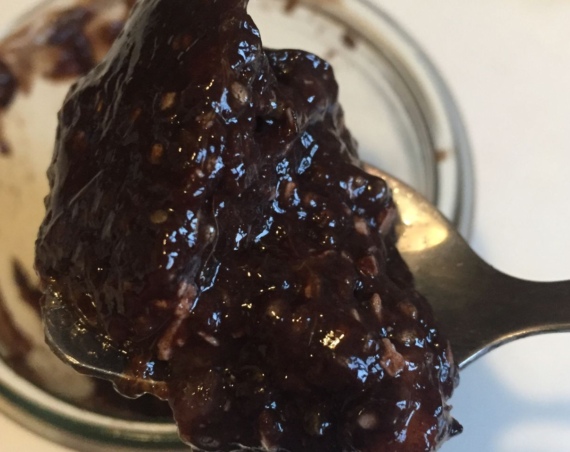
You may have heard others rave about mushroom coffee and never understood why? Here are all the reasons why people are drinking mushroom coffee and loving it.
Most people enjoy their morning cup of Joe. Whether it’s a home brew or a frantic morning run to Starbucks, coffee is a priority.
Coffee is one of the most popular beverages in the world with around 2 billion cups consumed every day (1).
Why? Coffee is not only delicious, but it’s a stimulant that allows us to be more productive and efficient. Yet, some people don’t enjoy the stimulant effect of coffee or want an alternative aside from tea.
Enter mushroom coffee.
What Is Mushroom Coffee?

The idea of soaking mushrooms in water and calling it coffee doesn’t sound very appealing. Rest assured that is not actually what mushroom coffee is.
Mushroom coffee is a blend of ground medicinal mushrooms and coffee beans. The result is a nutrient-dense, nutty blend that some may not even realize isn’t coffee.
How Is Mushroom Coffee Made?
Mushroom coffee is made from a select variety of medicinal mushrooms. These include Chaga, Turkey’s Tail, Lion’s Mane, Reishi, and Cordyceps.
The mushrooms are dried and blended into a powdered form. They are then mixed with ground coffee beans, usually in a 1-to-1 ratio.
The resulting blend can be prepared like regular coffee. You can enjoy it black, as a latte, or whatever brew floats your morning boat.
Does Mushroom Coffee Have Caffeine?
Mushroom coffee does contain caffeine because it is mixed with regular coffee beans. But, mushroom coffee only contains ½ the amount of coffee beans as regular coffee. Because of this, it is a lower-caffeine option.
A standard cup of coffee contains between 100-150mg of caffeine. Most mushroom coffees contain around 50-60mg of caffeine.
This is still quite a bit more than decaffeinated coffee. Decaff coffee contains between 1 and 4mg of caffeine per serving.
The caffeine content of mushroom coffee will vary by brand. The caffeine content of these products may not be on the label.
Health Benefits of Mushroom Coffee
Mushrooms have long been coveted for their medicinal properties. They contain bioactive substances known as adaptogens.
These substances help regulate the body’s stress response (2).
But, most studies on this were conducted on animals and human trials are still lacking.
These studies also did not use mushroom coffee. More research is still needed on the exact benefits of taking mushroom coffee.
Of the research conducted, there are many purported health benefits. These include improved immunity, improved cholesterol, and improved heart health.
They also found reduced incidences of ulcers, and improved nausea and vomiting in cancer patients (3, 4, 5, 6).
The health benefits researched vary by type of mushroom. For example, studies conducted on Turkey’s Tail showed immune-boosting properties.
Chaga mushrooms were used to help fight stomach ulcers and a combination can be used to improve nausea (3, 4, 5).
Possible Side Effects
Although mushroom coffee may seem harmless, there are some side effects.
Because human trials are limited, there remain a lot of unknowns. Safe and recommended dosages, potential medication interactions, and long-term effects are not established.
Side effects reported may vary based on the medicinal mushroom used.
For example, Reishi mushrooms can cause dry mouth, dizziness, nausea, and rash. Additionally, Chaga mushrooms can cause hypoglycemia in certain individuals (7, 8).
Because of the lack of studies, certain populations should avoid mushroom coffee.
Those who are pregnant or nursing should avoid mushroom coffee. Likewise, Individuals with chronic conditions or bleeding disorders should also avoid this product.
Bottom Line
Mushroom coffee is a trendy beverage made of a mixture of medicinal mushrooms and coffee.
It is a lower-caffeine option with adaptogenic properties.
There are a lot of purported health benefits of medicinal mushrooms. But, because human trials are limited more research is still needed.
Always discuss these products with your healthcare provider before taking them.


